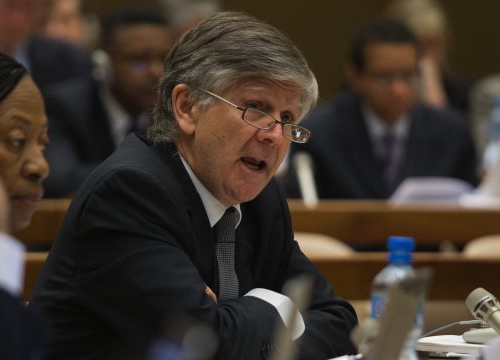New Paper Examines the Diversity in Membership of the UN Human Rights Treaty Bodies


US Mission Geneva
27 February 2018
Our new paper ‘Diversity in Membership of the UN Human Rights Treaty Bodies’ examines the composition of UN human rights treaty bodies (TBs) notably in relation to gender balance, geographical representation, as well as TBs members’ subject-matter expertise and professional background.
Having as a point of reference our In-Brief No. 1 on the ‘Independence of the Treaty Body Members’ that examined the treaty body composition as of 2012, this paper goes further and analyses how TB’s composition has modified following the election cycles taking place from 2013-2016.
The present study has been conducted in the context of our Academic Platform on Treaty Body Review 2020.
Key Findings
The paper is divided in four parts. The first part discusses the treaty provisions regarding TBs composition. The second part underscores the recommendations issued within the intergovernmental TBs strengthening process. The third part describes the methodology and limitations. The last part analyses the composition of TBs and its evolution from 2012-2016 along several axes.
‘The analysis of the evolution of TBs membership since 2012 outlines which and where the persistent shortcomings are. Aside of the lack of transparence in the nomination of candidates, gender imbalance, unequal geographic representation and presence of a high number of members coming from state executive branches remain key problems in TBs membership’ underlines Felix Kirchmeier, Manager of Policy Studies at the Geneva Academy.
Gender Balance
The paper highlights that some progress has been achieved towards gender balance within the treaty body membership. Although this is not reflected in the composition of all of the treaty bodies, the two last election cycles seem to indicate a trend towards decreasing the number of male members. Two Committees are exception, namely the Committee on the Rights of Persons with Disabilities and the Committee on the Rights of the Child. The Committee on the Elimination of Discrimination against Women comprising only one man member, and the Committee on Enforced Disappearance including one woman member have achieved no progress in closing the gender gap despite two recent elections. On the other hand, the Human Rights Committee and the Subcommittee on Prevention of Torture have moved closer to gender parity.
Geographic Representation
With regard to geographic representation, the paper highlights that members from states in the Western Europe and Others Group have occupied the majority of TBs seats throughout the period of enquiry. They are closely followed by members from states in the African Group. Members from states in Asia-Pacific and Latin-America and the Caribbean Groups are close to a par. Members from Eastern European states are overall the least represented in the composition of the treaty bodies.
Professional Background
The paper underlines that the election of members with a professional background in the executive branch of their respective state remains a concern. The analysis found that, on average, 44% of the TBs membership is composed of experts with such professional experience. The highest number of experts fulfilling simultaneously an executive function is elected to the Committee on Migrant Workers. More than 80% of this Committee’s members are Government representatives. The CERD and the CESCR Committees are also treaty bodies with high number of members coming from the executive branch.








